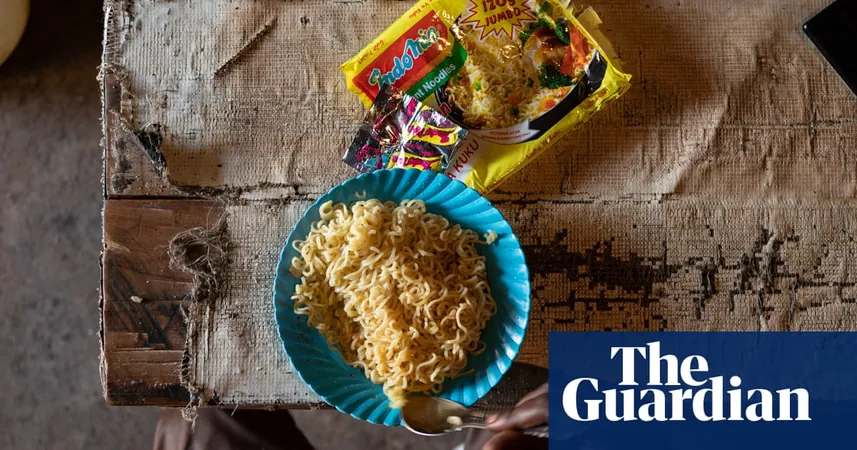
Should We Tax Instant Noodles? Expert Calls for Urgent Action Against Ultra-Processed Foods
2024-09-20
As university students gear up for another academic year, many are preparing to survive on a diet of instant noodles and sugary breakfast cereals. However, experts like Professor Carlos Augusto Monteiro are raising alarms about the health consequences of these ultra-processed foods (UPFs) and are now advocating for a tax on such items.
Monteiro, a leading authority from São Paulo University in Brazil, has closely studied the health implications of UPFs, a category that encompasses items heavily manufactured and often packed with artificial additives, from instant noodles to soft drinks. He asserted that the evidence linking UPFs to health issues across various bodily systems is undeniable and urgent action is needed to mitigate the chronic disease crisis.
"Strong policies, as soon as possible, are essential to reduce the impact of ultra-processed foods globally," Monteiro stressed. His research team developed the Nova classification system for foods, ranking them by their processing levels. The most concerning category is ultra-processed, which typically includes items that are not only high in sugars and fats but also low in essential nutrients.
Critics argue that the UPF classification lacks clarity and that existing health regulations on sugar and salt are adequate to protect public health. However, Monteiro contends that some foods do blur the lines of classification. "It is crucial to focus on overall food categories that are predominantly ultra-processed rather than fixating on technical definitions," he explained.
He pointed out that ice cream, for example, is predominantly ultra-processed in the UK market — suggesting a tax could significantly reduce consumption. Addressing the relentless marketing of these foods—particularly in developing nations—is essential as they contribute to rising rates of obesity and related diseases. Brazil is projected to see a startling 68% of its adult population classified as overweight or obese by 2030.
Monteiro likens the need for stricter regulation of UPFs to that of the tobacco industry, proposing mandatory health warnings and taxation on these products. Recent studies have indicated a worrying correlation between UPF consumption and various health problems, including obesity, cardiovascular diseases, and even mental health issues. He advocates for dietary guidelines that urge people to limit their intake of UPFs, emphasizing that even a healthy diet can be compromised by their consumption.
Monteiro's views challenge the prevailing notion that reformulating foods can make them healthier. He argues that this often simply enhances their appeal, encouraging more consumption rather than promoting better health.
The issue is particularly pressing in low- and middle-income countries where UPF consumption is on the rise, often leading to a surge in chronic illnesses that strain healthcare systems. Monteiro believes that a comprehensive international treaty may be necessary to address the global threat posed by UPFs, similar to anti-tobacco campaigns.
While some may fear that taxing these foods could disproportionately affect the poorest, Monteiro insists that strategies can be devised to produce healthier food options and improve access to fresh produce. Notably, he emphasizes, "No one is saying ultra-processed foods should be banned; rather, we need to promote healthier eating habits."
In an era where UPFs constitute about 66% of adolescents' energy intake in countries like the UK, action is pressing. Monteiro's insights manifest a clarion call for immediate and decisive measures to protect and improve public health across the globe. Could we be on the cusp of a new health revolution? Stay tuned for updates on this critical issue!



 Brasil (PT)
Brasil (PT)
 Canada (EN)
Canada (EN)
 Chile (ES)
Chile (ES)
 España (ES)
España (ES)
 France (FR)
France (FR)
 Hong Kong (EN)
Hong Kong (EN)
 Italia (IT)
Italia (IT)
 日本 (JA)
日本 (JA)
 Magyarország (HU)
Magyarország (HU)
 Norge (NO)
Norge (NO)
 Polska (PL)
Polska (PL)
 Schweiz (DE)
Schweiz (DE)
 Singapore (EN)
Singapore (EN)
 Sverige (SV)
Sverige (SV)
 Suomi (FI)
Suomi (FI)
 Türkiye (TR)
Türkiye (TR)